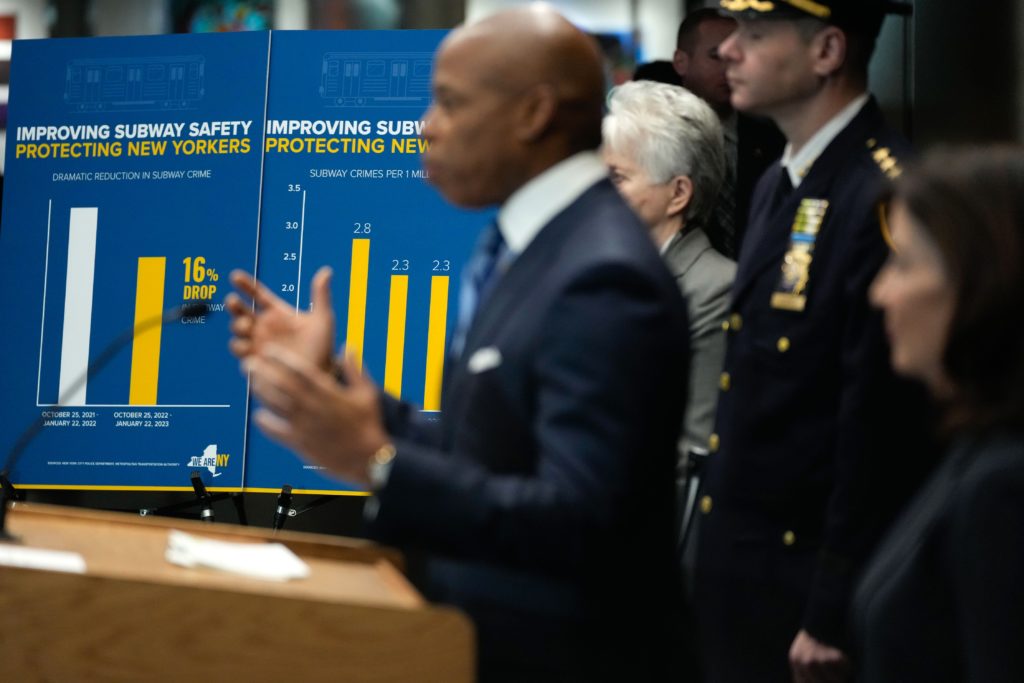By Matthew Fischetti

Mayor Eric Adams and Governor Kathy Hochul hold a press conference in the Fulton Street Subway Station to announce significant progress in making the subway system safer on Friday, January 27, 2023. Michael Appleton/Mayoral Photography Office
Major subway crime has dropped by 16 percent since last October, city and state officials announced last week.
At a press conference in Manhattan, Governor Hochul and Adams announced that the crime rate has reached pre pandemic levels, which the electeds credited to the launch of their “Cops, Cameras and Care program.” The plan added 1,2000 cops to the subways over 300 subway stops across the city and added additional trainings for NYPD and MTA employees.
The Atlantic Terminal station and the Sutphin-Archer Station in Brooklyn and Queens will have MTA police at the station, “freeing up roughly 100 NYPD officers for deployments at other priority transit locations on trains and in stations,” per the announcement.
In 2019, the rate of crime was 1.5 crimes per million rider; In 2022, the rate was 2.3 crimes per million riders; and in 2023 the ridership adjusted rate is only 1.7 crimes per million riders, according to figures unveiled by officials on Friday.
“So, despite all these facts, I can’t tell New Yorkers they should feel safe. I’m not going to even do that,” Governor Hochul said. “But the data is showing that New Yorkers are telling us they feel safer, and that’s what I’m going to pay attention to.”
MTA honcho Janno Lieber said that through survey findings, the department found that around 60 percent of riders said they felt safe in November compared to previous results finding only around 40 percent of riders said the same in October.
100 cameras are currently planned to be installed across subway cars as part of the Governor and Mayor’s plans. The entire 6,500 car fleet is scheduled to have cameras installed by late 2024.
“We had a billion people that rode our system last year, but we have 3.9 million daily riders, an average of six crimes a day. It didn’t matter if those numbers were there. The reality was that people said they felt unsafe,” said Mayor Adams. “So we had to have a dual approach. We had to deal with how people felt and we had to deal with the actual six crimes, felony crimes we were having on average a day, and that was our dual approach.
Governor Hochul also announced that the state will create 25 more bed-units, to bring the total of inpatient beds to 50. The beds are a key part of critical time intervention, a model used by clinicians for decades that helps transition people during turbulent times. The model was first developed to provide care for individuals facing chronic homelessness.


